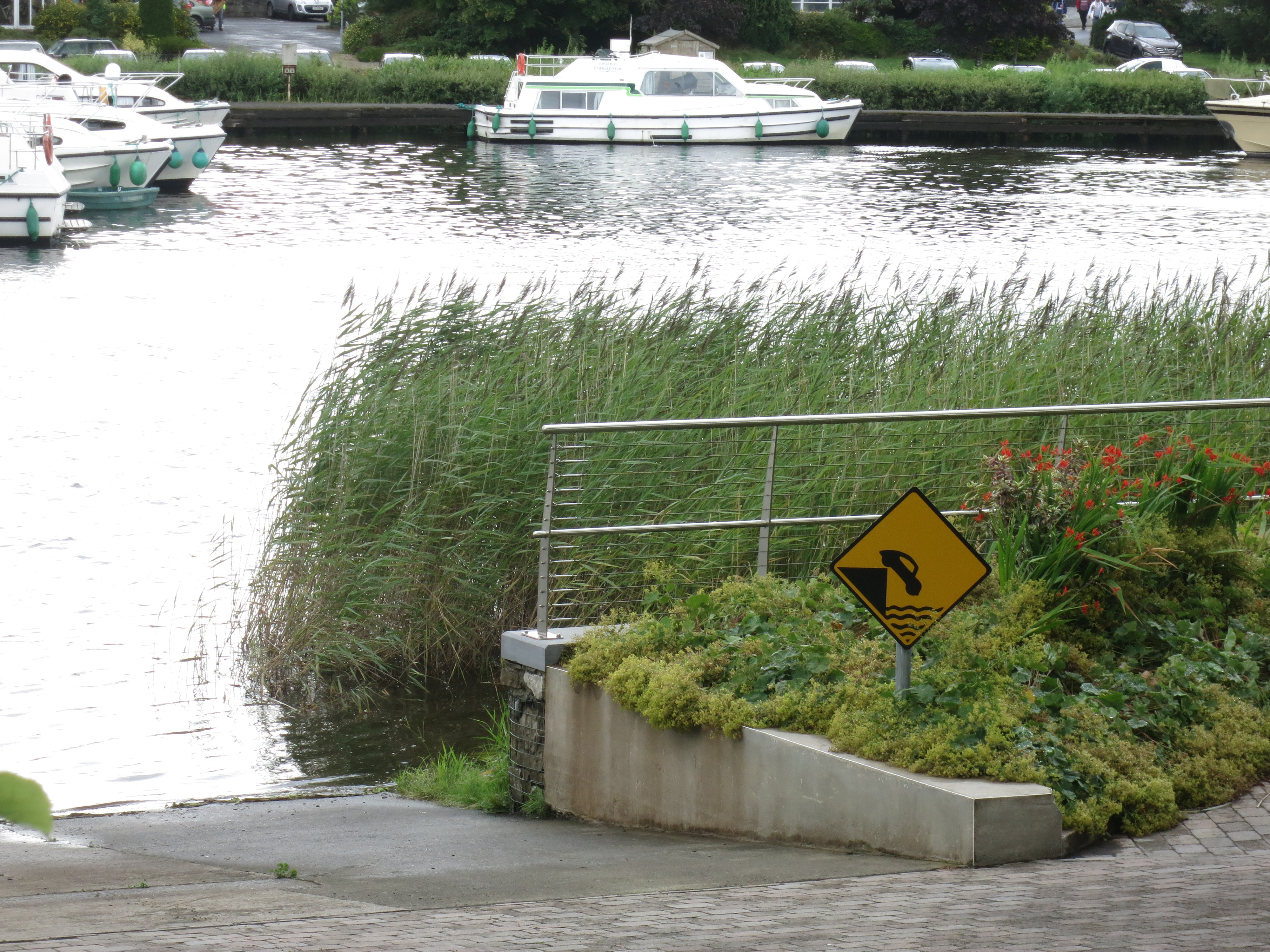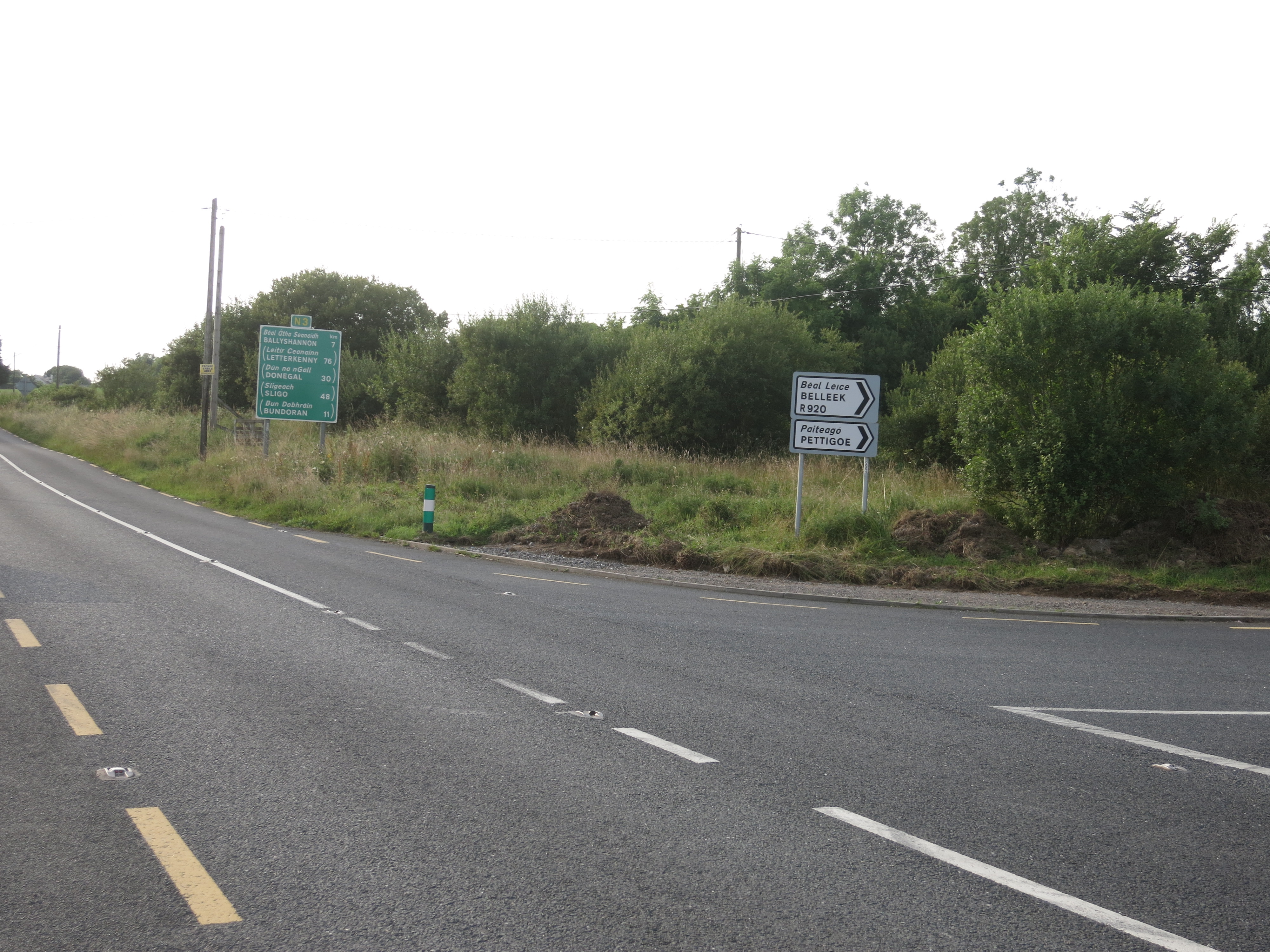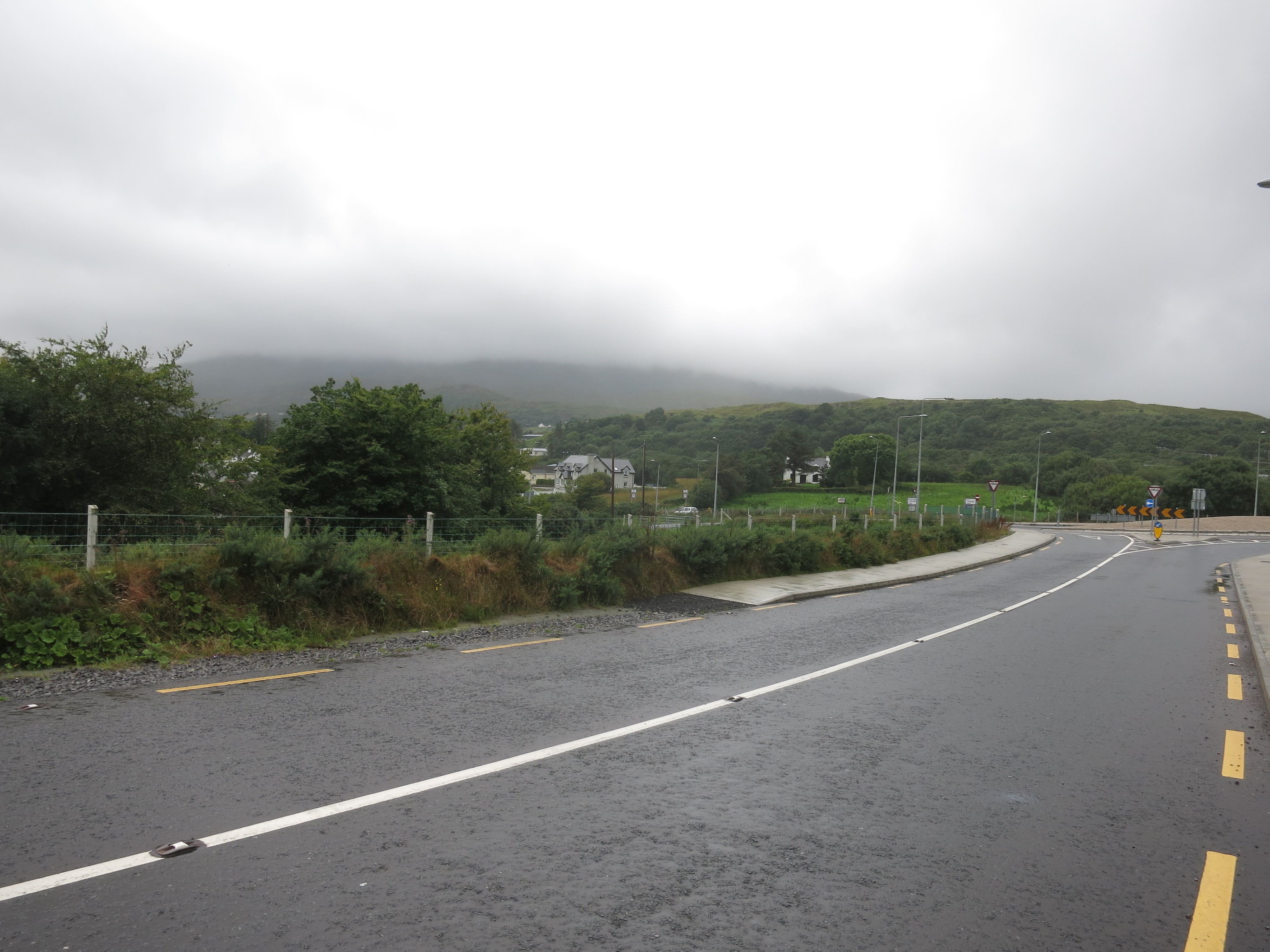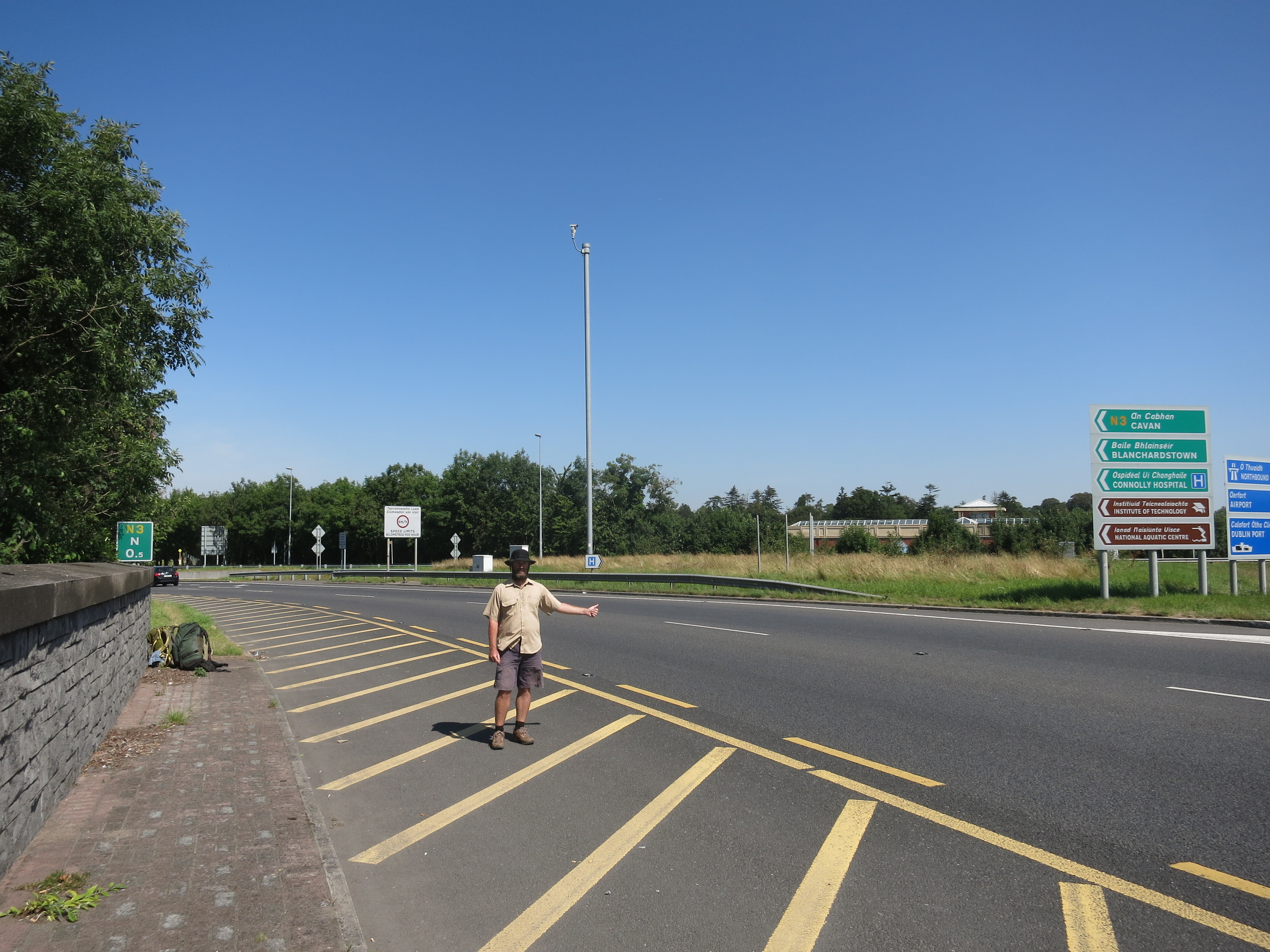
One thing that hitching teaches you, is that people are invariably willing to help when they're unable to. Full cars have friendly drivers regretfully unable to help, people turning off down the road gesticulate helpfully that unfortunately they're not going your way.
Well, that's some people. Many stonily ignore you and others, for some inexplicable reason, laugh at you, give you the finger or even, incredibly throw (harmless) things in your direction. Or stop for you, wait until you've gathered your baggage and hurried their way then speed off.
The openly negative stuff is relatively rare, but perplexing nevertheless. I've encountered that sort of aggression more as a cyclist, both commuting in urban areas and on long-distance camping rides, but, as a rule hitch-hikers are more ignored than abused.
The other thing that hitching teaches you is that the world has lots of wonderful, interesting people of varied and unexpected hues. I long ago learnt not to expect a lift from the hippie or hipster car; ostentatiously rejecting the dominant paradigm only goes so far! It'd be hard to categorise the person who picks up hitch-hikers, but they're usually open and trusting, interested in the world and ready to help others; the dodgy sexual predator or axe murderer must be a tiny minority as I've never come across them and rarely heard about unhappy experiences from experienced hitch-hikers. I hitched almost exclusively around Europe and Canada in the 1990s, getting thousands of kms and, conservatively, travelling 50 000 km on the thumb and never once had any serious trouble (the two exceptions were possibly tentative come-ons that nothing came of). Of course, a bit of common sense and vetting your lift beforehand, presenting the right mix of confidence, friendliness and trustworthiness and using common sense is essential, but not too hard to get the hang of.
I hadn't expected or even wanted to do much hitching on this trip; I enjoyed it immensely for the many years I did it, but I eventually tired of it more from a lack of enthusiasm for engaging with the drivers than anything else. There's a certain level of social energy you need to hitch successfully and enjoyably and sometimes, especially if you have the money, it's much easier to pay your ticket and sit in anti-social silence in your train, plane or bus.
Nevertheless, necessity and convenience dictated hitching from New Ross, where we finished canoeing, to Niamh's mate in Wexford, then the next day to the local train station.
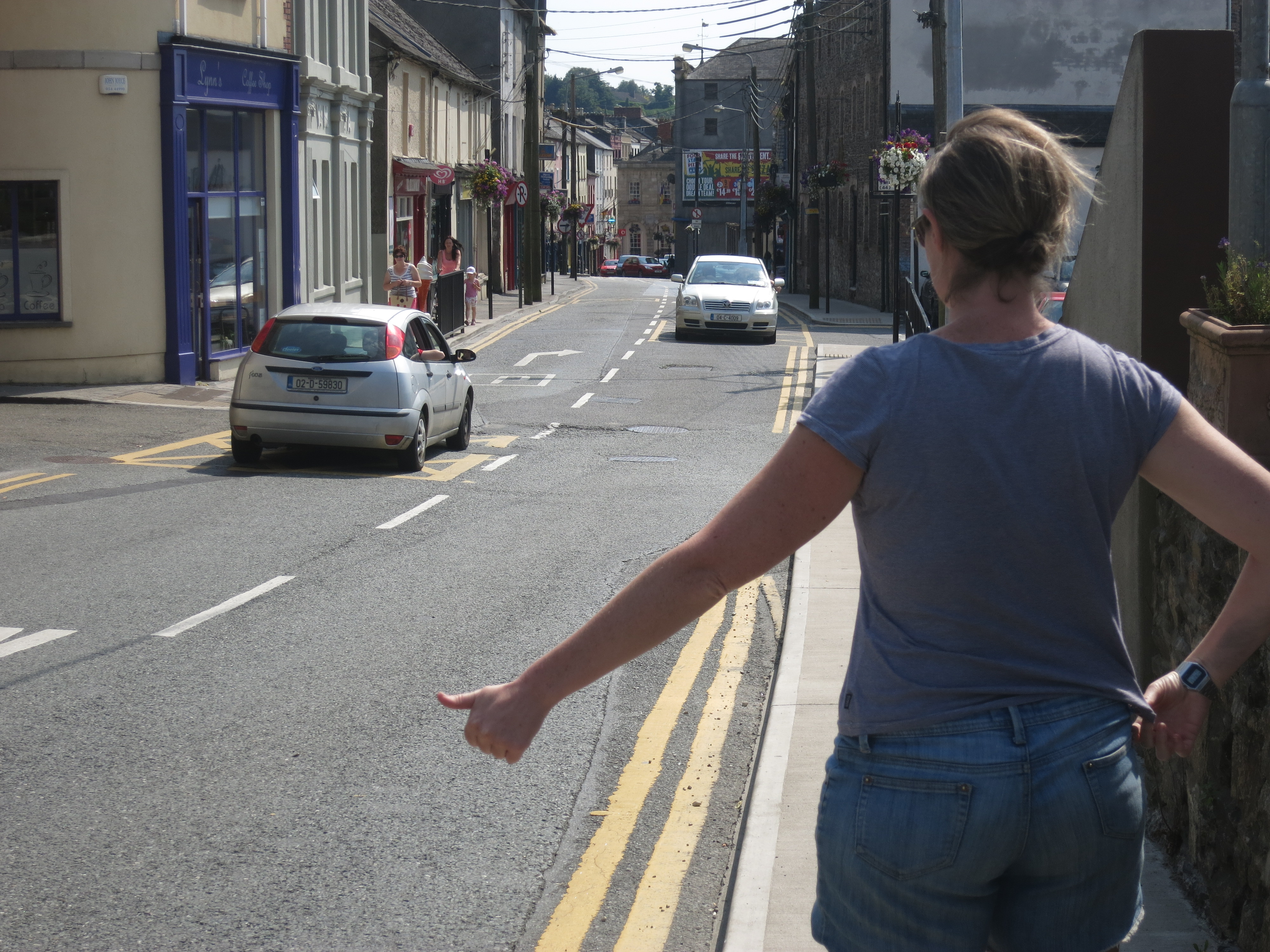
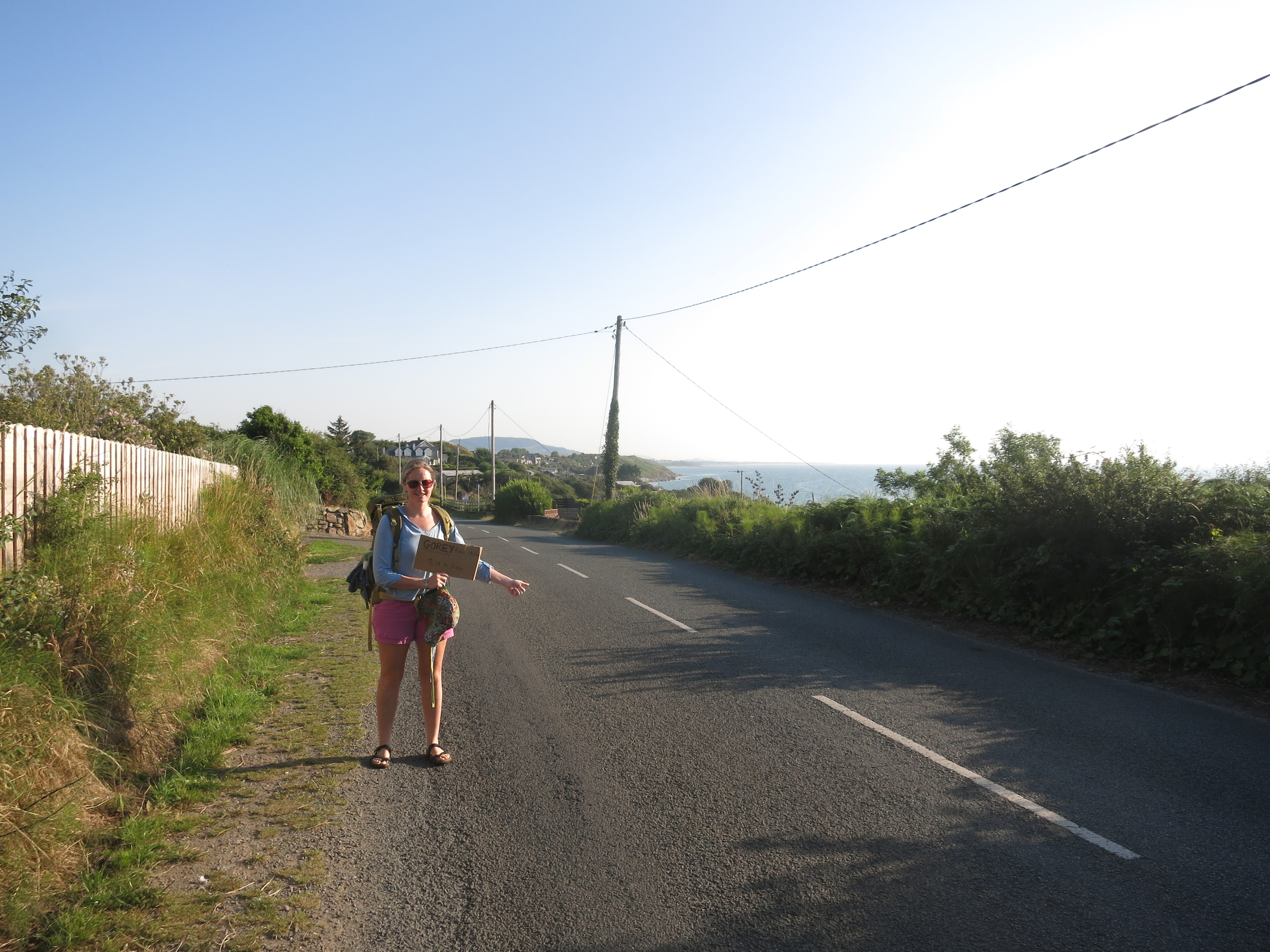
When we got to Gorey station, with two minutes to spare, we rushed in to buy tickets to find they were extortionately expensive. They're more expensive to buy in person than online anyway; they are also more expensive to buy on the day than before, with tickets three days before yet cheaper. Trains in Europe are increasingly being priced like airlines, with the occasional extremely cheap fare available if you book a particular, non-flexible ticket, but on-the-day tickets are often very expensive, which makes spontaneous train travel very unattractive. In this particular instance the tickets were over double the usual fare, so we bought tickets as far as Dublin and hitched on from there to Donegal.
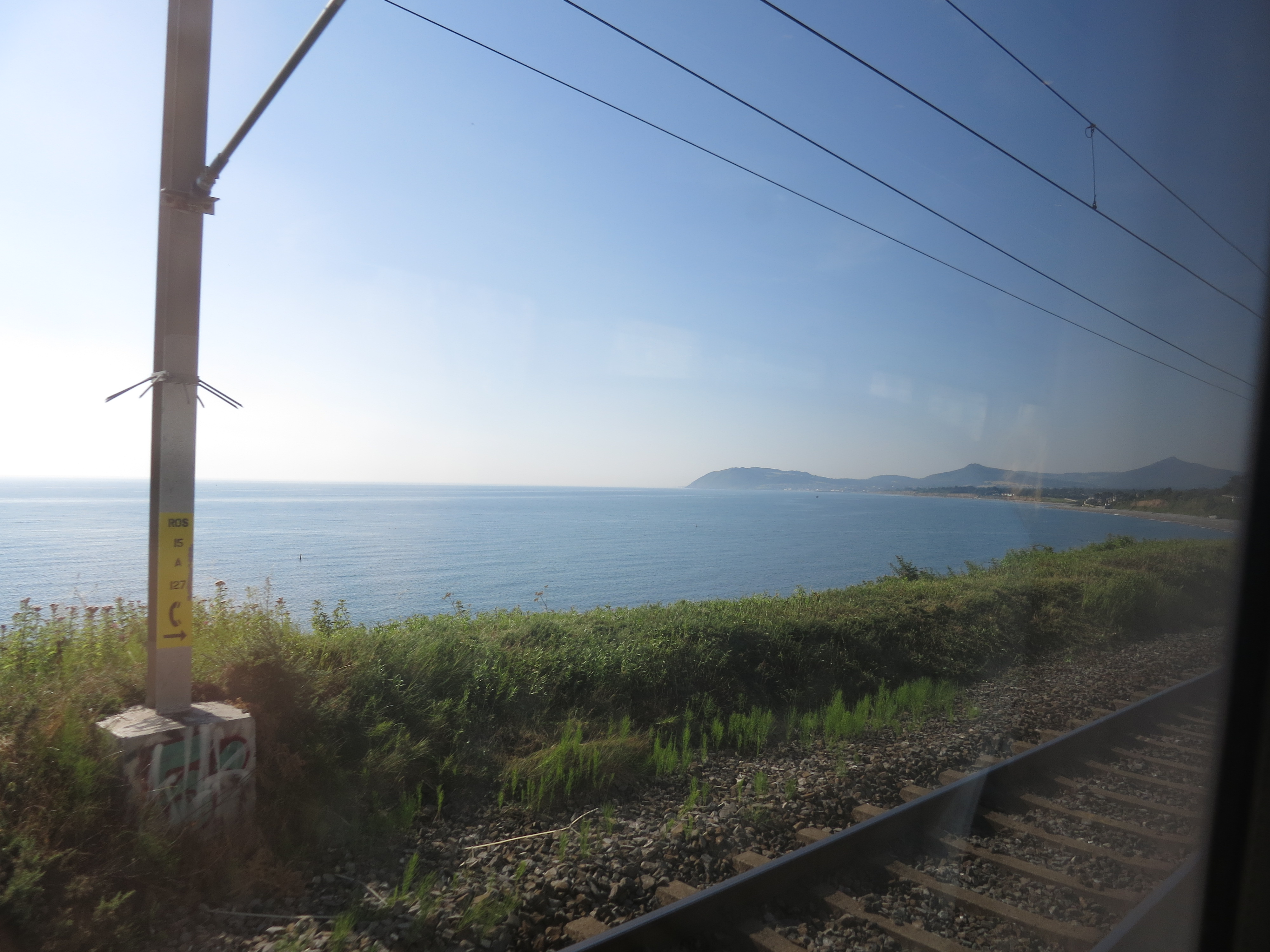
Big cities are usually very hard to get out of, as there's so much local traffic, longer distance traffic is going in a variety of directions and hitching places are usually busy and fast-paced, two factors which make noticing hitchers and stopping for them difficult. Dublin was no exception to this, the only exception being the aggressiveness we encountered; it was nothing over-whelming, but I can't recall ever experiencing anything so marked before.
Often, despite all your attempts at being friendly, looking safe, standing in appropriate place, you don't get a lift; we tried various places and tried to stay positive and friendly, to no avail. And often the person who gives you a lift is already pulling in before they've checked you out, the sort of person who always picks up hitch-hikers, and so it was in this case.
After two hours of waiting, we did get away, with a delivery driver heading west, a friendly, chatty bloke who'd done a bit of hitching himself, a characteristic shared by many people who pick you up! From there it all went pretty well; hitching in Ireland is generally pretty good, but slow, because the roads are windy and people are often not travelling far, so the journey is made up of lots of short rides!
After this fella we got a lift from a couple heading to the north coast before we'd even put our bags down, then a Polish immigrant who was full of wonder about Australia and life in general, who loved living in Ireland and sped us along to the next town, where we stopped for lunch. Again we hardly waited a minute before being picked up by a local bloke and his young son, I got to hear a strong Cavan accent and Niamh discovered that he knew one of her good friends from the area. Next we got a lift from a bloke in a two-door sports car who was going to a town near the border, but instead took us a further 20kms where, after a little bit of waiting, a bloke flashed his lights at us from a car park opposite and took us in his Saab a further on; this town wasn't our place, as we waited almost 90 minutes in various places for a lift, but then got a lift from another lovely person, an opera singer and professional singing teacher, who'd spent many years living in Italy. For those of you who've heard me sing or have even attempted to teach me, you'd appreciate the momentousness of what happened – he gave me a singing lesson! And it actually, to some degree, worked.
He dropped us off at the border – although it took us a long while to realise that and that we were standing right on it! In 1992, when I hitched from near Belfast to Donegal, there was military everywhere; random roadblocks with armoured vehicles and hi-tech guns aimed at your head and small towns with futuristic, dark-windowed fortifications in the main street and a border that was brimming with weaponry. It is incredible to see that now there is no border to speak of, not even a sign on this country road that it was the border, about the only indication being that the road markings changed slightly and the roadsigns were bilingual on the Republic side.
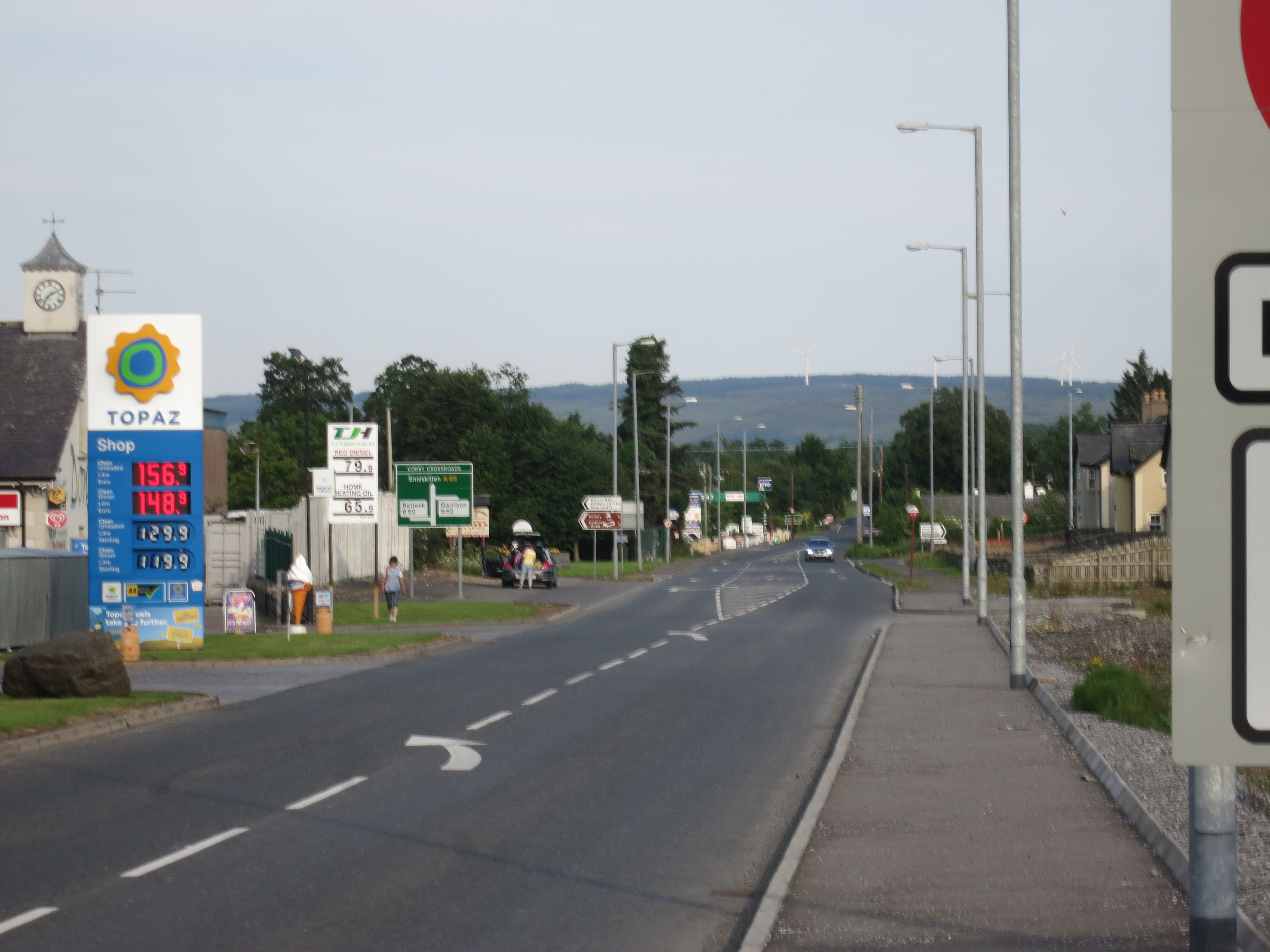
On the border - looking towards the Republic.
From here we got a lift from a lively old builder's labourer, a man of quirky humour, driving back from Liverpool, where he'd lived many decades, to his home village, then a hyperactive musician with her two young daughters to outside Donegal town and then from a young local bloke to Mount Charles – again, he'd hailed us from where he was parked to offer us a lift.
We were heading to an old mate of mine's farmhouse, the place that I'd visited in 1992, so, after a phone call and some directions, they took us through small, twisting roads to meet the neighbour who took us down to the house. To say it was in poor condition would be generous – it was pretty much uninhabitable, falling apart, full of building materials, no water or electricity and, at 9pm with no food or water, not particularly inviting, so we got a lift, went to a pub and got some food and ended up staying in a room above another pub for the night.
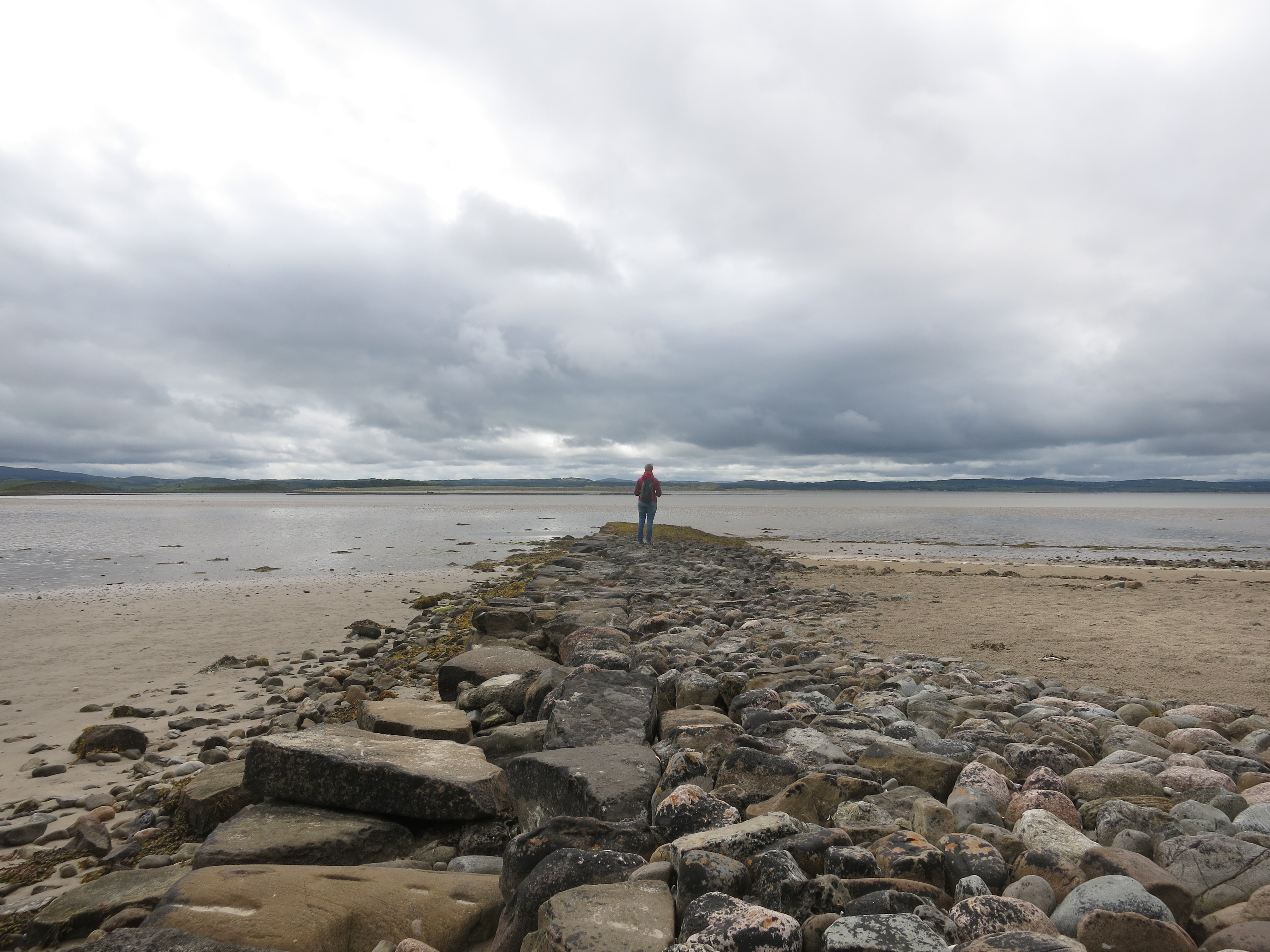
The next day, after a long stroll along the ocean, we hitched to Gleann Fhinne, again getting dropped right to the door in an out of the way place!
Leaving Donegal.
After our week there I again hitched out of Donegal to meet up with Niamh and family at her grandmother's place in Cloone, about 200kms away and again got a great variety of interesting lifts; a Scotsman who told me all about places to camp on the west coast of Scotland and distilleries to visit, a hale and hearty bloke about 60 who reminisced about Irish village life growing up (“My mother used to say, 'If you want entertainment, open the front door!'”), a water quality inspector who discussed Irish identity, language politics and Middle East politics with me in great depth and with great erudition and a young Indian bloke who ran three fish-and-chip shops in Ireland and Nth. Ireland.
And those sort of encounters have been typical of my experience hitch-hiking!
